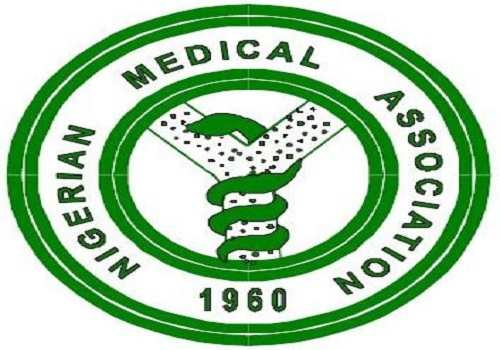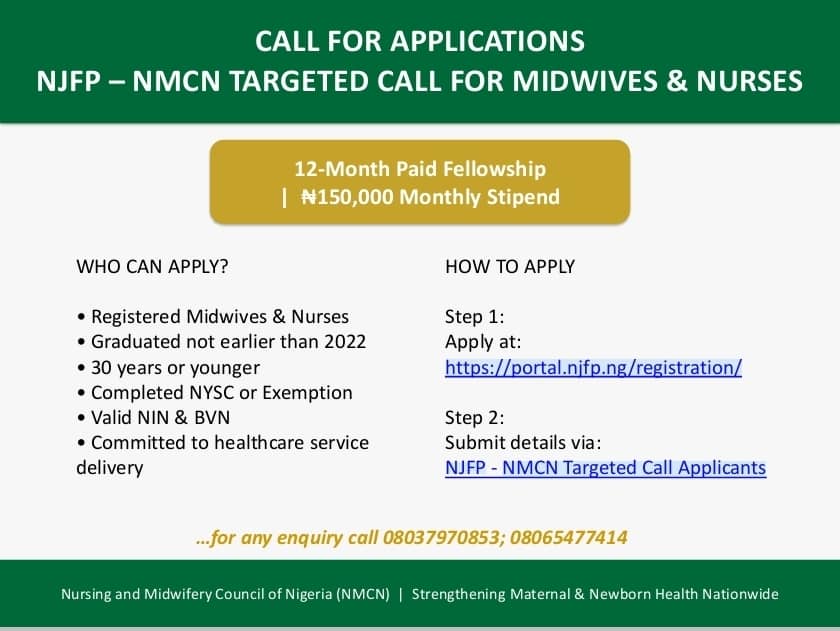To stop the spread of the Wild Polio Virus (WPV), Nigeria over the weekend had a major polio immunization campaign in all the 18 northern states and Federal Capital Territory (FCT), Abuja.
Indeed, polio is about to become the second-ever human disease to be eradicated – efforts are underway to ensure it will stay eradicated. Smallpox is so far the only human infectious disease to have been eradicated from the world.
The renewed onslaught against polio in Nigeria led by the National Primary Health Care Development Agency (NPHCDA) and its partners followed the recent detection of wild poliovirus type 1 (WPV1) cases in Nigeria, the first reported from the African continent in more than two years.
The announcement of these cases came on the eve of Africa’s ‘two year’ anniversary without polio. But even without detection of these cases, the risk of an ongoing circulating vaccine-derived poliovirus strain type 2 (cVDPV2) had also remained, in Guinea.
Also, there is the prevailing issue of delivering polio vaccine within complex humanitarian emergency response in Nigeria.
It is believed that the new cases of polio in Nigeria were because of the security challenges in the north east that has restricted the access of health workers to immunize children in the region. The Guardian investigation also revealed that there had been shortage of funds for the immunization campaigns. It was learnt that the funds for the ongoing campaign was just released on September 29, 2016.
According to the Global Polio Eradication Initiative (GPEI), the polio outbreak response in Nigeria and across the Lake Chad basin is being run within the context of a broader humanitarian emergency response, as north-east Nigeria is classified within World Health Organisation (WHO) as a Grade 3 emergency.
The cVDPV2 outbreak in Guinea should be cause for concern and a need for urgent action, particularly given the risk of undetected circulation of the cVDPV2 in the region, and now with the detection of WPV1 in Nigeria. Historically, WPV1 from northern Nigeria has repeatedly spread to re-infect countries across west Africa.
The risk of persistent subnational gaps – both in surveillance and population immunity – was highlighted and underscored at the recent Africa Regional Certification Commission meeting, not just in west Africa, but indeed across west, central and the Horn of Africa.
Despite tremendous progress achieved across the African continent towards polio eradication, detection of recent viruses and persistent surveillance and immunity gaps are a stark reminder that more must be done to secure a lasting polio-free Africa once and for all.
To address this, the NPHCDA, WHO and other partners are engaged in a polio outbreak response in north-eastern Nigeria, but it is being conducted within a broader humanitarian emergence response in the region.
Acting Executive Director, NPHCDA, Dr. Emmanuel Odu, told journalists that the Federal Government has released N9.8 billion for polio eradication and immunisation programme.
Odu commended President Muhammadu Buhari for his commitment and the timely release of the fund budgeted for polio eradication and immunisation programme
.jpg) He said that the agency believed that similar arrangement would be repeated for 2017 to push toward delisting Nigeria as polio endemic country.
He said that the agency believed that similar arrangement would be repeated for 2017 to push toward delisting Nigeria as polio endemic country. Odu said the federal government has released the fund as part of its substantial investment in its determination to save lives, protect Nigeria children and pregnant women.
According to him, after two years without wild polio virus in the country, Nigeria confirmed that three children were paralyzed by the disease in Borno. “The cases which originated from Jere, Gwoza and Monguno local governments of Borno as a result of the activities of Boko Haram insurgents.”
He said as part of the response to the outbreak, the agency was to mobilise personnel to the area to strengthen routine immunisation and notify all the stakeholders.
“Individual case investigation instituted for each of the cases and a comprehensive outbreak response plan was developed. As part of the immediate response mop-up targeting five local governments and 820,000 eligible children were vaccinated,” he said.
The executive director said the agency had outlined five rounds of the polio outbreak immunisation response between August and November.
He explained that the first and second rounds were completed and implemented in 18 states in the Northern Nigeria and the FCT.
He stressed that the round targets 31.54 million eligible children and 28, 757 161 children were vaccinated, adding that the remaining rounds would be complete in few weeks ahead.
Odu said the agency in partnership with the armed forces in the planning, implementation and monitoring of campaigns and other strategies for strengthening routine immunisation in-accessible and liberated areas.
“We are also working with the traditional institution to embark on advocacy and community mobilisation to address issue on vaccines rejection due to misconception about polio. We have good and effective cold chain arrangement to protect the vaccines,” he said.
WHO Overall Incident Manager, Rob Holden, told the GPEI: “I think the very first thing to say is that nothing is going to detract from Africa’s goal of becoming polio-free. All countries across the continent have worked incredibly hard to bring Africa to the brink of being polio-free, and this outbreak will be stopped rapidly and the region will be rapidly certified. The most effective way to achieve this, in the current emergency context, is to actually conduct the outbreak response within the broader humanitarian response. And there are many reasons for this. Firstly, it makes sense from an operational point of view.
“The GPEI has a vast infrastructure and staff on the ground. So have we. It makes sense to coordinate and align our efforts. But most importantly is the humanitarian aspect of the response. We cannot just deliver polio vaccine to populations who have not had access to basic healthcare or even food in months. We have to ensure that the populations receive what they actually need. Yes, there is a polio outbreak and they need vaccines to protect them from this virus. But over and beyond that, they need much more at the moment.”
Regional polio coordinator for WHO’s Regional Office for Africa, Pascal Mkanda, talked about working as ‘one WHO’, combining resources, playing off comparative advantages, a unique ability to work in areas not accessible by other agencies or partners, and ensuring Africa remains on track for polio-free certification.
Mkanda told GPEI: “Rob is right. If you think about the current situation on the ground: the main areas affected by the humanitarian emergency are Borno, Yobe, Adamawa and Gombe states. Approximately 50 per cent of the population is affected by this emergency. There are almost two million internally displaced persons, along with approximately 155,000 refugees in Chad, Cameroon and Niger. Access to health services has been drastically compromised, with half of the population not having access to any basic health services. This is significantly increasing the threat of disease outbreaks, and is resulting in high levels of morbidity due to common ailments such as malaria, acute respiratory infections, diarrhoea, and others. Acute malnutrition is increasing, leading to further medical complications and exacerbating severity of common ailments. In total, seven million people are in urgent need of humanitarian assistance. We cannot deliver aid in isolated silos…”
Holden further explained: “…Everyone recognizes that everyone has the same challenges, and our response must be the same. That is the aim, though for sure in such complex settings as north-eastern Nigeria it is very difficult.
“But the fact is: we have a network of more than 2,000 staff and volunteers on the ground. They have vast know-how, including of the local environment. As a result, we are able to operate in locations where at the moment no other agency or partner is able to operate. This puts us in a hugely advantageous position, and the overall response must capitalise on that.”
Holden said the WHO’s remit and technical expertise is of course to support the government and its leadership in strengthening the provision of basic health services. He said the provision of evidence-based technical guidance is a key strength of the organization. “That is one of our main areas of focus, in support of the Government at all levels, to address the primary healthcare crisis that has emerged, and try to close this gap in service provision. As such, we work closely with the State Ministry of Health in Borno, to coordinate the health sector response, with particular focus on reaching areas and populations most acutely in need,” he said.
Mkanda said populations in complex emergencies are more vulnerable to diseases such as polio. He further explained: “…The polio team provides of course the polio vaccine. But the point is: all these different programmes and organizations all have their own staff and infrastructure on the ground. It is all in our interest to deliver our ‘products’ as it were to the populations who need them the most. So by working together, we can increase our reach and make the biggest impact. That’s the overall aim and it’s really the only way to work.”
By: Chukwuma Muanya
The Guardian News
ABUJA: Training Schedule for Basic Life Support BLS, Pediatric Advanced Life Support (PALS), Advanced Cardiovascular Life Support ACLS, First Aid, CPR, AED
PORTHARCOURT: Training Schedule for Basic Life Support BLS, Pediatric Advanced Life Support (PALS), Advanced Cardiovascular Life Support ACLS, First Aid, CPR, AED
LAGOS: Training Schedule for Basic Life Support BLS, Pediatric Advanced Life Support (PALS), Advanced Cardiovascular Life Support ACLS, First Aid, CPR, AED
STOP paying for airtime and electricity, Let your phone pay its bills with ScreenT




